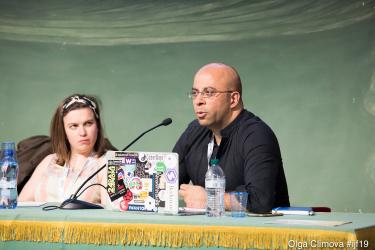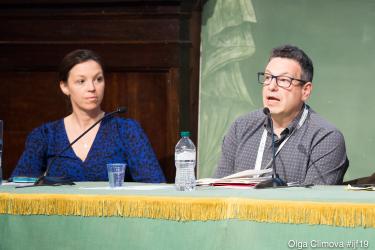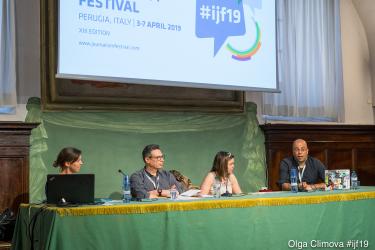There have always been battles about what journalism is, and who should be allowed to call themselves a journalist. Some want to put up razorwire around the profession, and others are more comfortable with free movement... (Don't panic: this isn't a panel leftover from 2005 asking "Are bloggers journalists?")
For a long time, funders and civil society tried different methods to persuade or incentivise journalists to cover public-interest stories they cared about - through training, handbooks, pitching stories, offering fellowships, or providing funding. Some went further, by setting up investigative organisations to provide evidence to journalists (like The Sentry), or integrated journalists and journalistic framing into their work (like Global Witness).
But over the past 3 or 4 years, a few have changed tack, and are investing directly in funding, launching or incubating thematic units staffed and run by journalists, and producing independent investigative journalism on these same public-interest issues. Not everyone is comfortable with what they see as a blurring of formerly clear boundaries between journalism and advocacy - while others see this as a natural part of the field.
We're going to walk these border areas with three expert guides:
- one funded by a donor to cover modern slavery within a major newspaper
- another incubated by an NGO to conduct independent investigations into illicit financial flows
- and the last, a wholly-owned but editorially independent journalism unit inside an environmental campaigning organisation
A little background reading for the curious:
- 2009 Nieman Lab/UPenn series on "NGOs and the news"
- 2011 paper by Hunter, Van Wassenhove, Besiou, and Van Halderen on 'The Agenda-Setting Power of Stakeholder Media' (and a 2017 follow-up)
- 2016 paper by Dr Ella McPherson on 'Source Credibility as 'Information Subsidy': Strategies for Successful NGO Journalism at Mexican Human Rights NGOs'
- 2018 book extract by Anne Koch (GIJN) on 'How Journalists, NGOs Can - & Should - Collaborate'






